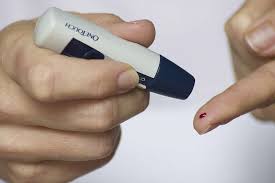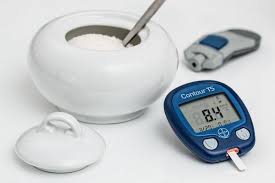The effects can vary depending on factors such as the amount of coffee consumed and individual differences in metabolism. It’s important for individuals with diabetes to monitor their blood sugar levels and consult with a healthcare professional about managing their condition.
Does drinking coffee lower blood sugar ? Yes, drinking coffee may lower blood sugar levels in some individuals, particularly those with type 2 diabetes.
Introduction to Coffee and Blood Sugar
The relationship between coffee consumption and blood sugar levels has been a topic of considerable interest and research. Coffee, is known for its stimulating effects due to its caffeine content.
Its impact on blood glucose and insulin concentrations is less straightforward and has implications for individuals with diabetes, as well as those concerned about their sugar levels.
Caffeine: The Key Compound
Caffeine, the primary active ingredient in coffee, has notable effects on the human body, including the metabolism of glucose. Caffeine’s influence on blood sugar levels is multifaceted.
It can lead to a short-term spike in blood glucose levels due to its stimulatory effect on the adrenal glands, which increases the release of adrenaline. This hormone can, in turn, trigger the liver to release more glucose into the bloodstream.
Long-term coffee consumption has been associated with improved insulin sensitivity and a lower risk of developing type 2 diabetes.
Impact on Type 2 Diabetes
Several studies suggest that regular coffee intake may be beneficial in reducing the risk of developing type 2 diabetes. This protective effect is thought to be due to a combination of factors, including the antioxidant properties of coffee and its ability to enhance insulin sensitivity.
The acute effects of caffeine can complicate this picture, as it may temporarily raise blood sugar levels, especially after meals.
For people with type 2 diabetes or those managing their blood sugar levels, the timing and amount of coffee consumption, along with the presence of other risk factors like obesity, are important considerations.
Effects on Type 1 Diabetes
Type 1 diabetes, characterized by the body’s inability to produce insulin, presents a unique challenge in understanding the effects of coffee. Unlike type 2 diabetes, where insulin resistance is a key factor, type 1 involves managing insulin levels externally. The impact of coffee, specifically caffeine, on individuals with type 1 diabetes is less clear-cut.
Caffeine can potentially affect blood sugar levels in people with type 1 diabetes by influencing how the body responds to insulin. Studies have shown that caffeine may interfere with insulin action, leading to a temporary increase in blood sugar levels.
For those with type 1 diabetes, this means that caffeine consumption could require more careful monitoring of blood sugar and potential adjustments in insulin dosage.
It’s important to note that the body’s response to caffeine is highly individualized. People with type 1 diabetes may react differently to caffeine, and some may not notice significant changes in their blood sugar levels after consuming coffee.
Continuous glucose monitoring and regular consultations with healthcare providers are essential for individuals with type 1 diabetes to understand how coffee affects their condition.
Decaffeinated Coffee: A Safer Option?
Decaffeinated coffee offers an alternative for those concerned about the effects of caffeine on blood sugar levels. Decaf coffee retains most of the other compounds found in regular coffee, including antioxidants, which may have beneficial health effects.
For individuals with diabetes or those monitoring their blood sugar levels, decaffeinated coffee might be a preferable option. It eliminates the potential blood sugar spikes associated with caffeine while still providing the enjoyment and potential health benefits of regular coffee.
Decaf coffee is not completely devoid of caffeine; it typically contains a small amount, though significantly less than regular coffee.
Studies comparing the effects of decaffeinated and regular coffee on blood sugar levels suggest that decaf may have a more neutral effect, making it a potentially safer choice for those specifically concerned about caffeine’s impact on glucose metabolism.
Coffee and Insulin Sensitivity

Insulin sensitivity refers to how effectively the body’s cells respond to insulin, a hormone crucial for regulating blood sugar levels. Several studies suggest that long-term coffee consumption may enhance insulin sensitivity, thus potentially reducing the risk of developing type 2 diabetes.
The beneficial effects of coffee on insulin sensitivity are thought to be linked to its rich composition of antioxidants, such as chlorogenic acid and trigonelline.
These compounds are believed to improve the function of the pancreas, increase the uptake of glucose by muscle cells, and reduce chronic inflammation, all of which can positively impact insulin sensitivity.
The immediate effects of consuming caffeinated coffee might differ. Acute caffeine ingestion can temporarily increase blood sugar levels and impair insulin action, leading to a short-term decrease in insulin sensitivity.
This effect is particularly noticeable after meals when insulin is actively working to regulate blood sugar spikes.
Acute vs. Chronic Consumption
Understanding the distinction between acute (short-term) and chronic (long-term) coffee consumption is crucial when considering its effects on blood sugar levels.
Acute consumption of caffeinated coffee can lead to transient increases in blood sugar levels due to caffeine’s stimulatory effect on the nervous system and the subsequent release of stress hormones like adrenaline, which can impede insulin’s effectiveness.
In contrast, chronic coffee consumption has been associated with several long-term health benefits, including improved insulin sensitivity and a lower risk of developing type 2 diabetes.
This protective effect is attributed to the various bioactive compounds in coffee, which may enhance glucose metabolism and insulin function over time.
The Role of Added Ingredients
When considering coffee’s impact on blood sugar, it’s important to factor in the role of added ingredients like sugar and creamer. These additives can significantly alter the health effects of coffee, especially for individuals monitoring their blood sugar levels.
Adding sugar to coffee increases its carbohydrate content, directly affecting blood glucose levels. For people with diabetes or those trying to control their blood sugar, consuming coffee with added sugar can lead to undesirable spikes in glucose levels.
Similarly, creamers, especially non-dairy creamers that often contain added sugars and fats, can also impact blood sugar and overall caloric intake.
For those concerned about blood sugar levels, consuming coffee black or with minimal additives is generally the best option.
Using natural sweeteners with a lower glycemic index or low-fat milk can mitigate the impact on blood sugar while still enhancing the flavor of the coffee.
Coffee’s effect on insulin sensitivity and blood sugar levels is influenced by several factors, including the frequency of consumption, the presence of caffeine, and the addition of ingredients like sugar and creamer.
Coffee Alternatives for Blood Sugar Management
For individuals looking to manage their blood sugar levels or seeking alternatives to coffee, there are several beverage options that can be both enjoyable and beneficial for blood sugar control. Exploring these alternatives can provide variety while also contributing to a healthier lifestyle, particularly for those with diabetes or pre-diabetes.

1. Green Tea
Green tea is renowned for its health benefits, including its potential to improve blood sugar control. It contains antioxidants known as catechins, which may enhance insulin sensitivity and help regulate blood sugar levels. Unlike coffee, green tea typically has a lower caffeine content, making it a gentler option for those sensitive to caffeine’s effects on blood sugar.
2. Herbal Teas
Herbal teas, such as chamomile, peppermint, and ginger tea, are naturally caffeine-free and can be a soothing alternative to coffee. Some herbal teas have been found to have blood sugar-lowering effects. For instance, studies suggest that chamomile tea may help in improving blood sugar control and insulin sensitivity.
3. Water with Lemon
Hydration is key for overall health, and sometimes, simple is best. Water with a squeeze of lemon provides hydration without any added sugars or calories. Lemon water can also help in maintaining a healthy weight, which is crucial for blood sugar management.
4. Cinnamon Tea
Cinnamon is a spice known for its potential to lower blood sugar levels and improve insulin sensitivity. Cinnamon tea, either made from steeping cinnamon sticks or adding cinnamon powder to hot water, can be a warming and beneficial drink for blood sugar control.
5. Black Tea
Like green tea, black tea contains compounds that may positively affect blood sugar levels. Although it has a higher caffeine content than green tea, black tea can still be a good alternative to coffee for those looking for a less potent source of caffeine.
6. Almond Milk
Unsweetened almond milk is a low-calorie, low-carbohydrate alternative to dairy milk that can be enjoyed on its own or used as a coffee substitute in beverages like lattes. Its low glycemic index makes it suitable for blood sugar management.
7. Vegetable Juices
Fresh, low-sodium vegetable juices made from ingredients like tomatoes, cucumbers, spinach, and celery are low in sugar and calories. They can be a nutritious and refreshing alternative to sugary drinks, helping to control blood sugar levels.
When choosing beverages as part of a diet for blood sugar management, it’s important to consider their carbohydrate content, glycemic index, and overall nutritional value. Avoiding added sugars and high-calorie ingredients is key. As with any dietary changes, consulting with a healthcare provider or a dietitian can provide personalized advice based on individual health needs and goals.
Will Stopping Drinking Coffee Lower Blood Pressure?
Quitting coffee may have an impact on blood pressure, particularly for individuals who are sensitive to caffeine. Caffeine can cause a short-term increase in blood pressure by stimulating the nervous system and temporarily narrowing blood vessels.
For those with caffeine sensitivity or high blood pressure, reducing or eliminating coffee may help in managing their blood pressure levels. The effect of caffeine on blood pressure varies among individuals.
Some may not see a significant change in blood pressure upon quitting coffee. Consulting with a healthcare provider is recommended for personalized advice, especially for those with hypertension or other cardiovascular conditions.
How Can I Flush Sugar Out of My System Fast?
Flushing sugar out of the system quickly is not straightforward, as the body naturally regulates blood sugar levels through insulin and other metabolic processes. There are ways to stabilize and lower blood sugar levels more effectively:
Hydration: Drinking water can help to eliminate excess glucose through urine and keep the body hydrated.
Exercise: Physical activity can increase insulin sensitivity and help muscles use glucose more efficiently.
Fiber-rich foods: Consuming foods high in fiber can slow down the digestion of carbohydrates and the absorption of sugar.
Avoiding additional sugar intake: Minimizing the intake of high-sugar foods and drinks can prevent further spikes in blood sugar.
Balanced meals: Eating balanced meals with a good mix of carbohydrates, proteins, and fats can help stabilize blood sugar levels.
It’s important to approach blood sugar control in a sustainable and safe manner. Rapid changes in blood sugar levels can be harmful, especially for individuals with diabetes.
Can Coffee Affect Fasting Blood Sugar?
Coffee, particularly if it contains caffeine, can potentially affect fasting blood sugar levels. Caffeine can stimulate the production of hormones, such as adrenaline, which in turn can lead to a temporary increase in blood sugar levels.
Sugars, creamers, and syrups can significantly increase the calorie and carbohydrate content of the beverage, which can also affect fasting blood sugar levels.
Drinking black coffee or minimally sweetened coffee is less likely to have a significant impact compared to coffee with added sugars or high-calorie creamers.
Individual responses to coffee can vary, so monitoring blood sugar levels and consulting with a healthcare provider for personalized guidance is advisable, especially for individuals with concerns about blood sugar control.


Leave a Reply